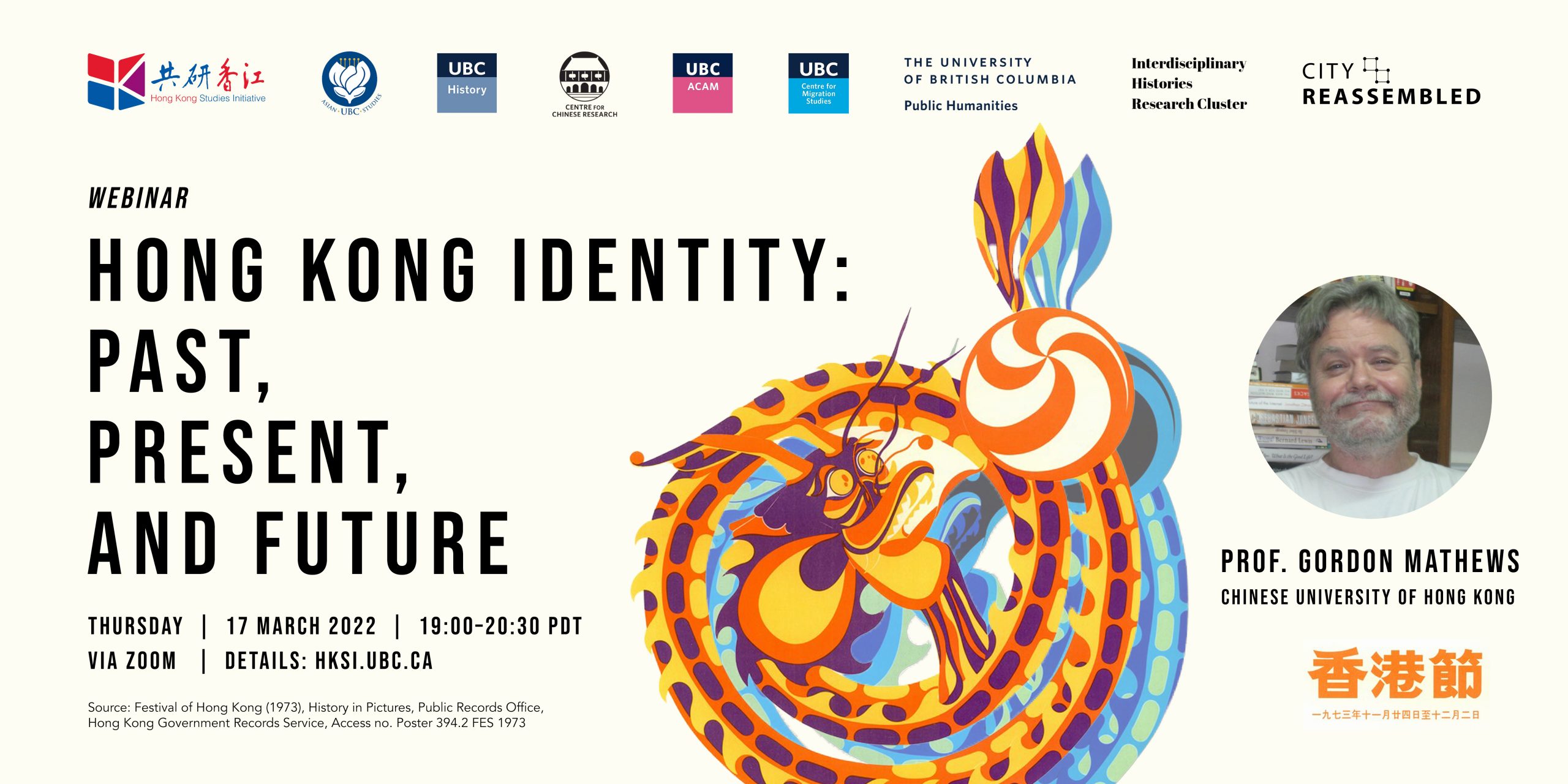[Updated 31 March 2022: For those who might have missed this webinar, here are the webcast and the photos.]
Webinar
Thursday, 17 March 2022, 19:00–20:30 PDT
Hong Kong Identity: Past, Present, and Future
Prof. Gordon Mathews, The Chinese University of Hong Kong
via Zoom
A City Reassembled event
Registration required
Hong Kong identity emerged in the 1970s; until then, most Hongkongers throughout the city’s history felt that they were Chinese. During the 1970s and 1980s, senses of Hong Kong identity were linked to the “refugee mentality” of those who had fled China. In the 1980s and 1990s, identity became more rooted in popular culture: Cantopop and the Hong Kong films attracting attention across the globe. To the surprise of many analysts, senses of Hong Kong identity did not diminish after Hong Kong’s return to Chinese sovereignty in 1997; instead, Hong Kong identity became stronger, with many Hongkongers continuing to emphasize their differences from mainland China, extolling democracy and not comprehending “love of country” in a way that people elsewhere in the world, not least in mainland China, have taken for granted. Hong Kong, in this era, was “a city of protest”; however, that era now seems over. With the passage of the National Security Law in 2020, and expanded Chinese control over Hong Kong, is Hong Kong identity coming to an end? Will Hong Kong identity survive only in diaspora, in London, Vancouver, Taipei, and Melbourne and elsewhere? Or can Hong Kong identity also continue as a distinctive identity within China, but taking new, presumably apolitical forms, with “Hongkongese” being something similar to “Shanghainese” as an identity?
Gordon Mathews is a professor in the Department of Anthropology at the Chinese University of Hong Kong. He has written or co-written What Makes Life Worth Living? How Japanese and Americans Make Sense of Their Worlds (1996), Global Culture/Individual Identity: Searching for Home in the Cultural Supermarket (2001), Hong Kong, China: Learning to Belong to a Nation (2008), Ghetto at the Center of the World: Chungking Mansions, Hong Kong (2011), and The World in Guangzhou: Africans and Other Foreigners in South China’s Global Marketplace (2017).
This webinar is organized by the UBC Hong Kong Studies Initiative and co-sponsored by: Department of Asian Studies, Department of History, Centre for Chinese Research, Centre for Migration Studies, Asian Canadian and Asian Migration Studies, Public Humanities Hub, and the Interdisciplinary Histories Research Cluster.
Registration for: “Hong Kong Identity: Past, Present, and Future”
Registration for this event is now closed.
